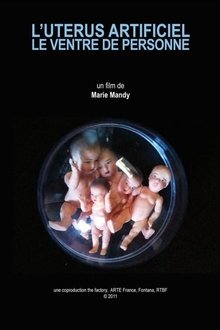Money has become the drug of our societies. Confronted with this phenomenon, citizens all over the world are inventing complementary currencies for social ends and are opening the debate: What is money for?
Related Movies
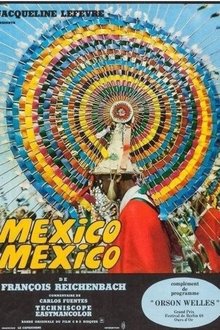
México, México: Mexique en mouvement (1968)
"Mexico begins where the roads end ”. Mexican writer Carlos Fuentes tells us about the history of Mexico: its invasions, its revolutions, its sacred lands, its forgotten legends, its religious rituals and this frightening misery. François Reichenbach and his camera sink into the dust, on this sacred land, where "the land never ends."

Sicko (2007)
A documentary about the corrupt health care system in The United States who's main goal is to make profit even if it means losing people’s lives. "The more people you deny health insurance the more money we make" is the business model for health care providers in America.

Detection (2012)
DETECTION. Consideration of past, present and future of a small village in Germany. For over a century — wars and states went by — the military is the largest employer. The everyday life of the community is inextricably linked to the events on the nearby military training area. Diaries, daily instructions, petitions, letters and photos tell about daily life at different times.

Before the Flood (2016)
A look at how climate change affects our environment and what society can do to prevent the demise of endangered species, ecosystems, and native communities across the planet.
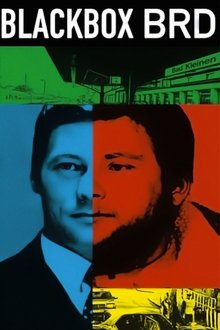
Black Box BRD (2001)
Black Box BRD steps back into German history, showing the Federal Republic of Germany of the 70s and 80s. The country is polarized due to the power struggle of the German state and the "Red Army Faction". Society is torn, the fronts are irreconcilable. The life stories of both Wolfgang Grams and Alfred Herrhausen are tragically linked to this era. Grams is the one who takes up arms for moral rigor; Herrhausen however seizes power and dies when powerful.

The Negotiators – How to Make Peace (2022)
“Negotiators, how to make peace” is a documentary that takes a penetrating look at the identity and evolution of people who seek solutions to armed conflicts in places such as Colombia, Mexico, South Sudan and the Balkans.

Notes on Summer (2023)
Notes on Summer is a 2023 short movie shot in Italy and France. It is up to you to grasp the meaning, because the meaning is always different, nevertheless, I want to dedicate this film to all those who already know what to do even before starting their holidays.

Germany in Autumn (1978)
Germany in Autumn does not have a plot per se; it mixes documentary footage, along with standard movie scenes, to give the audience the mood of Germany during the late 1970s. The movie covers the two month time period during 1977 when a businessman was kidnapped, and later murdered, by the left-wing terrorists known as the RAF-Rote Armee Fraktion (Red Army Fraction). The businessman had been kidnapped in an effort to secure the release of the orginal leaders of the RAF, also known as the Baader-Meinhof gang. When the kidnapping effort and a plane hijacking effort failed, the three most prominent leaders of the RAF, Andreas Baader, Gudrun Ensslin, and Jan-Carl Raspe, all committed suicide in prison. It has become an article of faith within the left-wing community that these three were actually murdered by the state.

Abacus: Small Enough to Jail (2017)
The incredible saga of the Chinese immigrant Sung family, owners of Abacus Federal Savings of Chinatown, New York. Accused of mortgage fraud by Manhattan District Attorney Cyrus R. Vance, Jr., Abacus becomes the only U.S. bank to face criminal charges in the wake of the 2008 financial crisis. The indictment and subsequent trial forces the Sung family to defend themselves – and their bank’s legacy in the Chinatown community – over the course of a five-year legal battle.
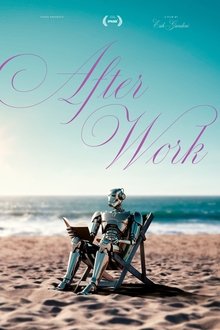
After Work (2023)
Kuwait’s constitution says that every person has the right to a job, so in some places 20 people are employed for one person’s job. In South Korea, they work so much that a policy has been introduced to turn off computers at the end of the day so that employees can’t work any more. In the US, they give up over 500 million holiday hours each year, while Amazon’s drivers are trying to form a union. Meanwhile, robots are poised to take over most jobs and put the rest of us out of work. Work is so crucial to our identity and what we spend our waking hours on that it is barely noticed anymore. A lot has happened since a group of Puritan priests invented the concept of work ethic in the 1600s, and in the 21st century the very concept of work is in many ways disintegrating. A perfect situation for a filmmaker like Swedish mastermind Erik Gandini, who travels the world to explore what the concept of work means today – if it means anything at all.

virar mar / meer werden / becoming sea (2020)
Water as a physical and metaphysical metaphor and background of human existence. A docu-fictional essay between the Brazilian Sertão-deserts and the Northern-German flood areas of Dithmarschen. Dramas and day-by-day-observations in times of climate change.
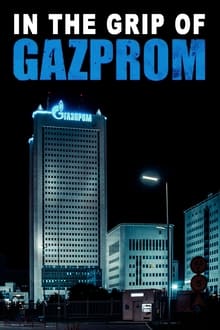
In the Grip of Gazprom (2023)
The war in the Ukraine has changed the way many European countries view Russian politics. Suddenly it became clear how dependent countries had become on Russian gas imports for decades and what Vladimir Putin was up to. However, no country needs more gas than Germany. It was only after Russia's invasion of the Ukraine that the German government realized that Russia had long used gas as a weapon to impose its will on states. The instrument created for this purpose is the natural gas production company GAZPROM. So how did Germany become so dependent on Russian gas? The documentary shows how, over several decades and several changes of government, a broad alliance of politicians and business representatives did everything possible to secure Germany's energy supply with cheap Russian gas, while the Kremlin's foreign policy became increasingly aggressive and the warnings of experts went unheeded.
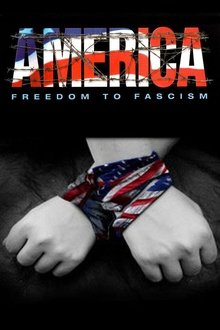
America: Freedom to Fascism (2006)
This is a documentary about an honest search for the truth about the Federal Reserve Bank and the legality of the Internal Revenue System. Through extensive interviews with recognised experts and authority, the director shows an astonishing revelation of how the Federal Government and the Bankers have fooled the American public by taking thier wages and putting it in the pockets of the super-rich.

Money as Debt (2006)
Paul Grignon's 47-minute animated presentation of "Money as Debt" tells in very simple and effective graphic terms what money is and how it is being created

Capitalism: A Love Story (2009)
Michael Moore comes home to the issue he's been examining throughout his career: the disastrous impact of corporate dominance on the everyday lives of Americans (and by default, the rest of the world).
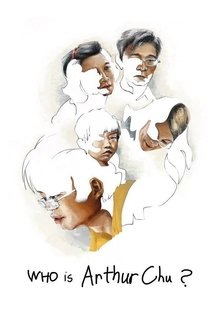
Who Is Arthur Chu? (2017)
Documentary feature about 11-time Jeopardy! champion and Internet iconoclast, Arthur Chu.

Les œufs dans le plat (2022)
In France, 15 billion eggs, which constitute the cheapest animal protein on the market, are consumed every year. With ever more demanding consumers, the sector is changing. The production of eggs from caged hens is plummeting while free range and organic farming is on the rise. But can we mass produce quality eggs and respect animal welfare? How are the pasteurized egg products that can be found in food products and in collective catering canteen dishes made?

